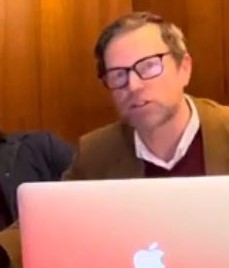Question time is usually the first item of business of the Parliamentary day.
But under urgency a sitting day can extend over several calendar days, thus if there is to be questions asked of Minister's, unamimous agreement to squeeze in question time is required by all parties.
This coming week Parliament will once again go into urgency. And it looks very likely that the cut and thrust of question time will again prove to be a casualty of the Government's desire to advance its legislative program.
As well as being possibly the most entertaining aspect of the day in Parliament, question time is also important for providing accountability and providing timely debate on issues of the day.
Question time normally takes between 60 and 90 minutes of the House's time, give or take the odd point of order.
It is not only the current Government's more obvious foes National and Act who miss out when question time is cancelled. The Greens, NZ First and United Future will also not be able to put in their two cents worth on topical issues.
Also affected is the Government's chance to espouse its own political triumph's by utilising the time-honoured patsy question (when a Minister is asked to explain what wonderful things they have been up to lately).
There will also be no chance for Government members to dredge up questions relating to New Zealand's nuclear free policy and have a crack at Don Brash.
There is no compunction for the Government of the day to make room for question time when advancing its legislative program.
However in the current Government's first term it was a common occurrence for there to be both urgency and question time. According to the Greens Co-Leader, Rod Donald, this was partly because of the supply and confidence agreement that existed at the time with the Green Party.
"When we supported urgency on confidence and supply (regular urgency rather than real) we negotiated for question time to be held."
Mr Donald now blames the United Future Party, who are currently providing the Government with a confidence and supply agreement, for the current state of affairs. Mr Donald also considers that the ACT Party haven't, "played the game", and have been too intransigent when negotiating around the topic of urgency.
When contacted regarding this alleged intransigence ACT's Ken Shirley was scathing of the process of pushing legislation through under urgency, pointing out that some legislation put through under urgency was not even referred to a Select Committee for consideration. Mr Shirley did however have some praise for his ecological adversaries.
"The Greens to their credit gave an undertaking [in the last Parliament] so that we'd always have questions [of the day during urgency]."
Whilst Shirley gave the Greens credit for their part in the previous administration's in negotiations regarding urgency, he too is less impressed with United Future and the current arrangements.
" If United Future had any balls they'd insist we had question time," he said.
ENDS



 Ian Powell: The Dirtiest Of Politics And A Tale Of Two MPs Cloaked In Hypocrisy
Ian Powell: The Dirtiest Of Politics And A Tale Of Two MPs Cloaked In Hypocrisy Gordon Campbell: On A Neglected, Enduring Aspect Of The Francis Era
Gordon Campbell: On A Neglected, Enduring Aspect Of The Francis Era Eugene Doyle: 50 Years After The “Fall” Of Saigon - From Triumph To Trump
Eugene Doyle: 50 Years After The “Fall” Of Saigon - From Triumph To Trump Lynley Tulloch: Pulling The Mat Out From Under The Early Childhood Education (ECE) Sector
Lynley Tulloch: Pulling The Mat Out From Under The Early Childhood Education (ECE) Sector Howard Davis: NZSQ Inaugurates Wellington Chamber Music’s New Season
Howard Davis: NZSQ Inaugurates Wellington Chamber Music’s New Season Gordon Campbell: On The Trump Upside, And Peters Persecution Of Trans People
Gordon Campbell: On The Trump Upside, And Peters Persecution Of Trans People